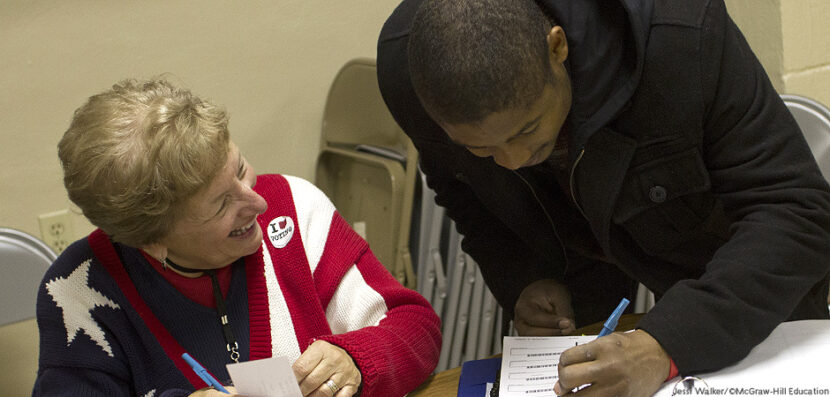- Current Events Nebraska Rejects Winner-Take-All Proposal
- Citizenship Voting Under Age 18
- Citizenship Citizenship in Action
- Democratic Party Biden’s and Trump’s Recent Primary Results
- Elections Trump and Biden Win South Carolina and Michigan Primaries
- Democratic Party Trump and Biden Win Big in Early February Contests
More Problems with Voting Rights
A consistent political theme over the last year to year-and-a-half has been several court cases focused on voting ID laws passed by states and other laws centered around voting rights. Last week, another debate over the right to vote early in North Carolina became news.
Voting Rights Being Targeted
Each state sets their own rules on whether or not their citizens are allowed to vote early, how early voting can begin, and the methods that are allowed to cast a ballot. The federal 4th Circuit Court of Appeals earlier struck down a group of voting rights changes that included: limiting the time available for early voting, requiring a photo ID in order to vote, and eliminating the ability to have same-day voter registration. The 4th Circuit court claimed that the details of the North Carolina law were written to specifically disadvantage African American voters and were therefore discriminatory.
Local voting boards, who are responsible for implementing the rules and regulations of voting said that the reduction in early voting hours was driven by budget concerns. Those supporting the need for photo identification and preventing same-day registration are concerned that it opens the door for voting fraud. On the other hand, critics of these arguments continue to say that there is very little evidence of widespread voter fraud either in North Carolina or anywhere else in the country as a whole.
Voting Rights for the Disabled
A new angle on this issue can be seen by examining how some disabled citizens lost their right to vote when someone else was appointed their legal guardian. For example, a person who suffered a brain injury and has lost the ability to speak is sometimes assigned a guardian to speak for them in certain critical moments. However, new electronic voice-generating technologies, touch-sensitive pads, and eye-tracking computer software has opened up new methods of communication for the disabled. It is on this basis that some citizens are going to court to request their individual right to vote once again.
Beyond the question of whether or not certain disabled people can adequately express and indicate their opinions, some critics worry that those who have legal guardians may be under some sort of influence that prevents them from voting their individual preferences. Similar to the question of voting fraud, however, this is difficult to prove.



